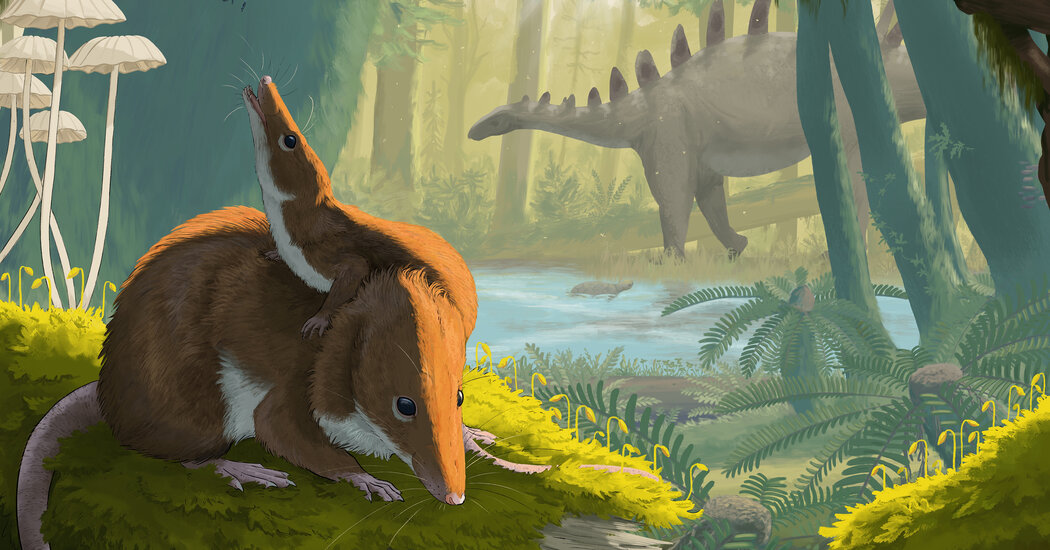Scientists found an unexpected aging pattern in a mostly intact juvenile mammal skeleton from the paleontological period.
Small mammals often live fast and die young. Rodents and shrews mature quickly, mate within months and usually go belly up in a year or two. Some giant rats kick the bucket in just six months.
But miniature mammals have not always burned out so quickly. Researchers recently analyzed a pair of fossilized skeletons belonging to a mouse-size mammal relative that lived among dinosaurs during the Jurassic period. Their findings, published Wednesday in the journal Nature, reveal that these critters lived much longer and grew more slowly than their similarly sized descendants.
The two specimens were discovered decades apart on the Isle of Skye in Scotland. This craggy island was home to swampy lagoons fringed by dense forests 166 million years ago. Sauropod dinosaurs stomped across the mud as pterosaurs flew overhead. Scurrying underfoot was a menagerie of Mesozoic mammal relatives.
Krusatodon kirtlingtonensis was among these ancestral mammals. The species was previously known only from fossilized teeth. The two newly described specimens provide a more complete picture of Krusatodon, which resembled a pint-size possum and weighed less than a hockey puck.
The larger of the Krusatodon specimens was discovered in the 1970s. The smaller Krusatodon was discovered in 2016 by Elsa Panciroli, a paleontologist at National Museums Scotland and the lead author of the new study, and her team. It remains the only relatively complete skeleton of a juvenile Jurassic mammal known to science.
Dr. Panciroli said she was delighted “to realize that the two of them were an adult and a juvenile of the same species.”
